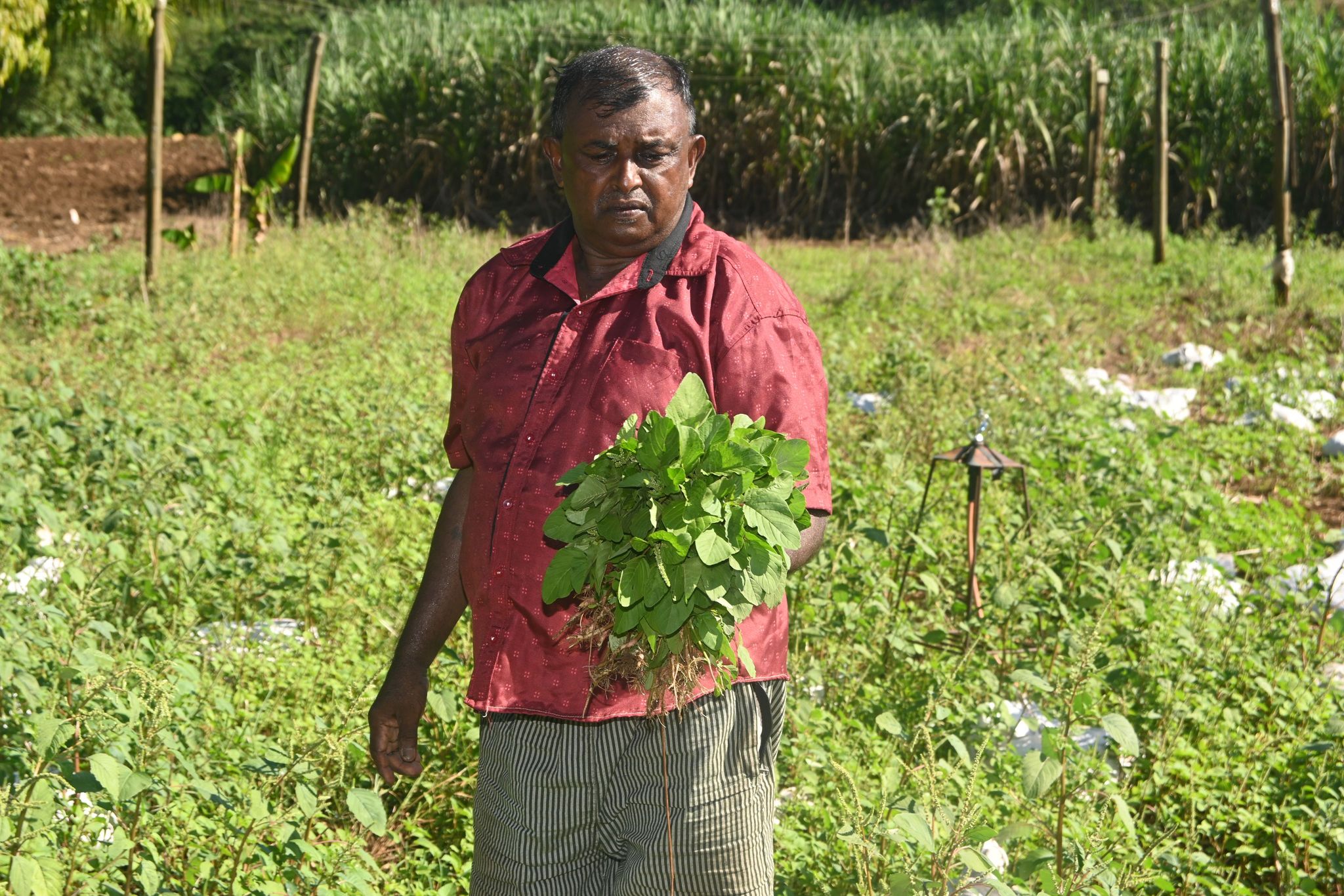HARDWORKING ‘MOCA’ FARMER ENCOURAGES YOUTHS TO UTILISE THE LAND

Some often wonder, why is agriculture important and why must we sustain it?
First and foremost, agriculture helps sustain life by providing the food we need to survive and this is what 63-year-old Rajesh Kumar of Saru in Lautoka believes.
Mr. Kumar spends his time growing amaranthus or locally known as moca, and supplies them to the Lautoka market on a weekly basis.
The mere sight of healthy sprouting moca plants spread across a half acre of land and reflecting its green leaves against the sun is indeed a sight to behold.
This is the sight that greets you when you visit his farm and his rough hands and cracked heels bear witness to the days of hard labour on his farm to which he says has certainly paid off.
“All that is witnessed now unfolds over time with dedication, planning, sacrifices, and hard work,” said Mr. Kumar.
He recalls that before becoming a full-time farmer back in 1984, the father of four worked in the delivery department of the Suncourt Hardware Company in Lautoka to feed his family.
Full time farming never crossed his mind as he felt that all his family needs could be achieved through his weekly wages.
“In 1986 my wife, Asha Lata, started teaching me how to plant moca and other vegetables as she comes from a farming family in Ba and knows all the tricks and trade of farming,” he smiled.
The equally hardworking wife said that they had to think of their children and how their needs varied in the household.
“Our children were growing and so were their needs and the income we were receiving was not enough,” she said.
“I suggested it once to my husband for us to try and do full time farming as the revenue earned from the land is rewarding as I had experienced whilst growing up in my family,” said Ms. Lata.
“I continuously reminded him that nothing beats farming for a living and asked him to leave his job so that we could fully concentrate on toiling the land and in the end, good sense prevailed,” she smiled.
In 1986 Rajesh resigned from his work and became a full-time farmer on their 14-acre piece of land and had never once regretted the decision.
From moca, he also moved to planting cabbage, eggplant, chilies, guava, and lettuce with moca being his main all-season vegetable.
“Moca is an easy plant to
cultivate, it is very nutritious and can be made in menus at home be it lunch
or dinner,” he said.
“If you are finding it difficult to start your farming venture, I suggest that you start with moca as it is easy to cultivate and look after.”
According to the couple, the highest moca supply taken to the Lautoka market was 80 dozen bundles sold wholesale.
With the fluctuation of the market prices, the couple had seen the increase in moca market prices from a mere 20 cents a bundle back in 1986 to $9-$20 per dozen in recent years.
“We supply wholesale to the Lautoka market every week and supply during both off and main season supplying 20-40 dozen per day,” he said.
With many years of farming, extensive ideas are born with regards to production and innovation. Through that, Rajesh is producing his moca planting material and has mastered the art of obtaining it from old moca plants.
“Since the west is a very dry region, we are also fortunate to have a river running beside our farm and we are using it to irrigate our organic vegetable farm during the dry season.”
From the couple’s leap of faith in 1986, they managed to put their four children to school and extend their home costing them $3,000, and bought a second hand vehicle that transports his vegetables to the Lautoka market.
“The more you invest into your farm, the more return you will get. Too many youths are consuming yaqona as if it is their full time job. We must use our time wisely and if we have land, utilise it well,” advised Mr. Kumar.
Mr. Kumar hopes that his story will inspire youths around the country to engage in agricultural activities as money earned from sweat, tears and hard labour is the sweetest of them all.
-Ends-
